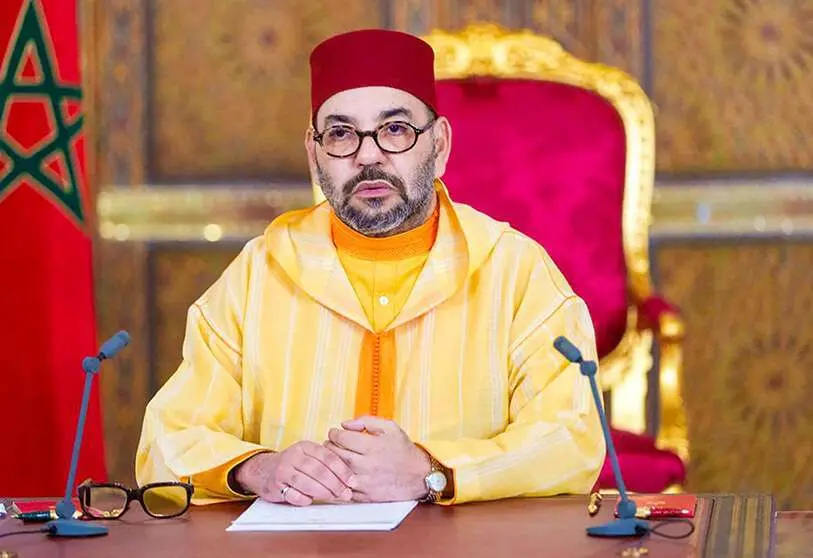Morocco develops its social contract

In the midst of the pandemic, King Mohammed VI launched the project to generalise social protection, which was later approved by parliament. A historic social contract and a challenge for Aziz Akhannouch's government, which began with this major initiative.
Will he be able to fulfil this mandate on time?
The challenge of universal social protection represents a second modernisation after the construction of the most advanced infrastructures throughout the Kingdom, from Tangier to La Guera. This time it is a major historic social macro-project, with a view to improving the welfare of Moroccans and bringing the country up to the level of our EU neighbours (Spain and Portugal).
The cost is more than 5 billion euros a year to finance four programmes, to be implemented over five years. And it seeks to generalise compulsory health insurance (AMO), already operational, family benefits by 2023 and 2024, compensation for loss of employment, to be activated in 2025 along with the expansion of the base of pension plan members.
Economically and financially, the project is a major budgetary effort, but absolutely necessary. It will reduce the informal economy and significantly expand the middle class. It will particularly benefit the most vulnerable categories who will be protected from the dangers related to illness, childhood, loss of employment or old age. It will also dignify them by improving their economic, social and cultural position, integrating them fully into the country's economic and financial circuit.
In the past, these people had to spend a large amount of money on medical care, hospitalisation and medicines, which they had little or no access to. In many cases, they had to give up their small savings or assets to cope with their own or their close relatives' illness. Now they will see their purchasing power increase and will have money at their disposal which they can use for savings, consumption or investment.
The generalisation of family benefits will protect children, reduce school drop-out rates and the abandonment of children, which has become a real social problem in recent years. In general, there will be a protection allowance targeted at seven million school-age children. Particularly those belonging to families in a precarious situation, as well as benefiting three million households without school-age children.
Unemployment insurance will cover anyone who has lost their job while in regular employment, keeping citizens active in the labour market without despair or marginalisation.
Finally, some 5 million people who are currently employed but do not qualify for a contributory pension when they reach retirement age will be entitled to it once the minimum contribution ceiling has been lowered. This solidarity will guarantee these citizens a vital income which, together with universal health care, would improve their life expectancy.
By 2022, work is underway, with some delay, on the generalisation of compulsory health insurance (AMO), for the benefit of 22 million more people who will benefit from insurance covering the costs of consultations, treatment and hospitalisation. The number of unpaid workers and their families are already beneficiaries of this insurance and exceeds the six million mark.
Citizens with a RAMED health card for the frail and needy, some 11 million, are now being transferred to the National Social Security Fund (CNSS) system as of last July. They will be treated under the same conditions as other workers. In other words, they will also benefit from private health care and other health benefits.
By the end of 2022, 100% coverage of compulsory health insurance (AMO) should be completed for all citizens. This will lead to the second phase of the project in 2023, i.e. the generalisation of family benefits.
This macro social project began with the signing of three framework agreements by the different public administrations involved, directly or indirectly, on the same day of its launch (April 2021). And, in record time, the framework law on the generalisation of social protection was approved in the plenary session of 15 March 2021. Today, most of the implementing decrees have already been published in the Official Gazette. Others will see the light of day as progress is made on the different programmes.
Despite this, there seems to be a certain slowness in some processes. And this is only the beginning. The hard part is yet to come. For this macro-project requires providing the public administrations with sufficient staff to manage the applications. In addition to implementing a series of far-reaching structural reforms to improve healthcare in general, as well as the development of digital systems for managing hospitals, outpatient clinics, ambulances and pharmacies.
Of course, medical proportionality should be improved. This means eliminating the deficit of human and material resources, as well as their unequal geographical distribution, by improving the ratio of effective health resources to population.
Accompanying measures such as training and strengthening the medical skills of health professionals should also be adopted. If this is not enough, recourse should be made to qualified personnel and Moroccan talent abroad, as well as to local private initiative and direct foreign investment.
The Akhannouch government is aware of the structural reforms it needs to adopt in order to establish the new health system. It is also aware of Moroccan society's enthusiasm for this social contract, which represents a major step forward in terms of social cohesion and the fight against poverty and inequality.
The President of the government, Aziz Akhannouch, has a comprehensive and well-defined plan of action in the form of specific legislation, with detailed stages and deadlines, as well as funding mechanisms to bring this historic initiative to fruition.
Consequently, nothing should go wrong given the ruling coalition's comfortable majority.

